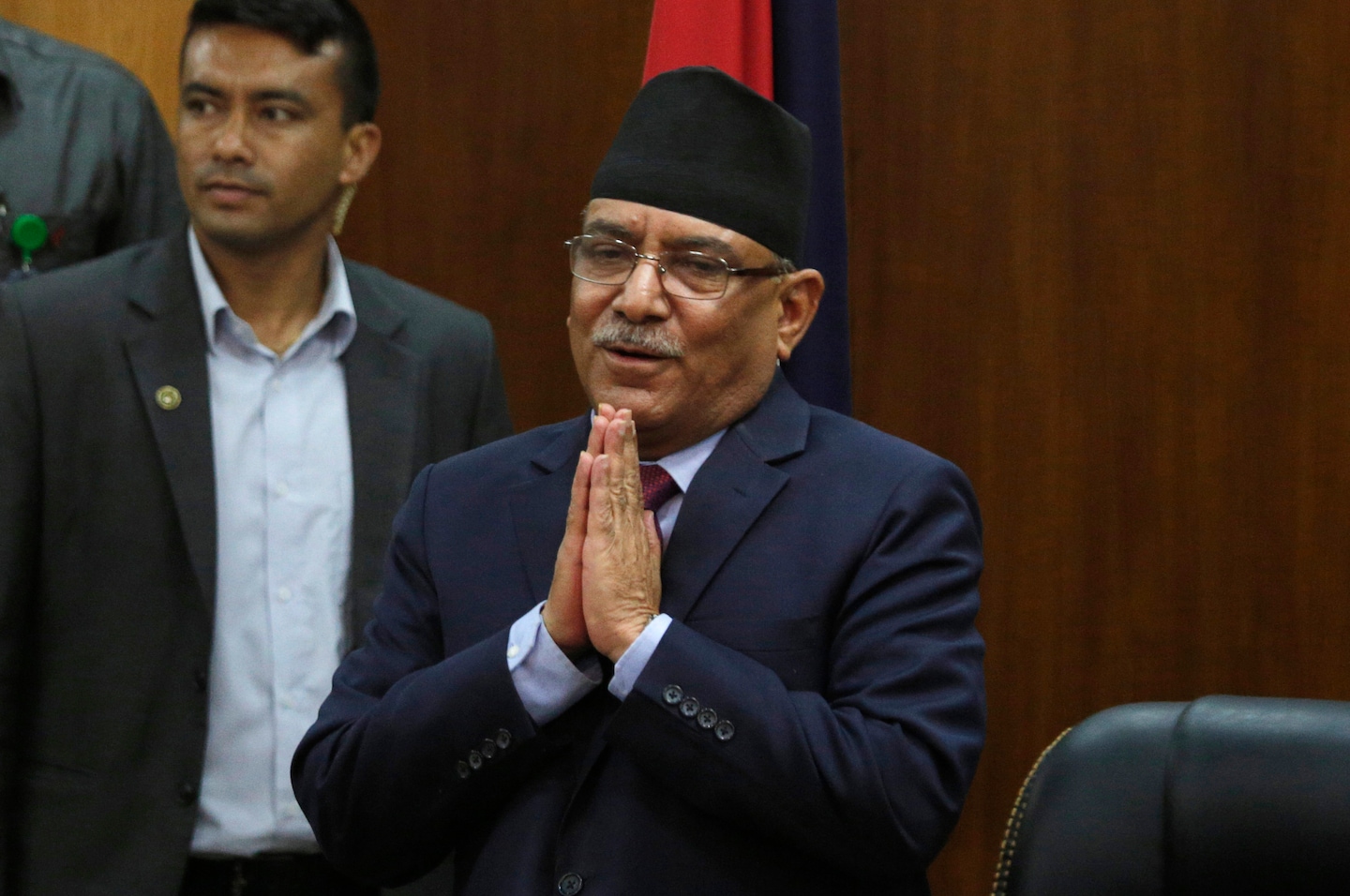Since the November election, none of the contenders had the votes to form a government outright. But weeks of backroom intrigue culminated late Sunday, when Prachanda, long seen as a potential kingmaker, emerge victorious with support from Oli, his rival-turned-comrade.
After waging a guerrilla insurgency beginning in 1996 — a conflict that saw more than 17,000 killed and allegations of war crimes by government forces and rebels — Prachanda, whose nom de guerre means “the fierce one,” signed a peace deal in 2006 and ushered the Maoists into the political mainstream. He previously served as prime minister in 2008 and 2016, with both stints lasting less than a year.
While Nepal has seen a carousel of 13 prime ministers in 16 years, with few leaders offering dramatically new proposals to lift the impoverished economy, this election has revived a geopolitical question with heightened international implications: would Nepal, strategically perched in the Himalayas, tilt toward China or toward India and the United States?
“The Communist parties are supposed to be more sensitive to Chinese interests and Deuba closer to India, but everything seems to be pretty ephemeral in Nepal,” said Ranjit Rae, a former Indian ambassador. “In the end, it’s the personal interest of the leaders that decides policy rather than strongly held positions.”
Following the announcement of Prachanda’s selection, Indian Prime Minister Narendra Modi and the Chinese Embassy in Nepal both tweeted their congratulations.
Building on policies of successive U.S. administrations, the Biden White House has emphasized building relationships with governments across South Asia to counter China. Under pressure from the State Department in February, Deuba’s government ratified a $500 million infrastructure deal it had signed five years earlier with the U.S. Millennium Challenge Corporation, a foreign aid agency established under President George W. Bush.
The deal was criticized by Nepal’s Maoists and derided by the Chinese Foreign Ministry as Nepal opening a poisoned “Pandora’s Box” from Washington, while the State Department accused the Chinese of meddling in the tiny Himalayan nation.
“The Americans were openly saying the Chinese are instigating Nepal to oppose [the infrastructure deal] and the Chinese were saying the Americans are persuading Nepal to act against China,” said Rae. “This sort of public spat was something new that never happened before in Nepal.”
This summer, a domestic political furor over Nepal’s ties with the United States forced Deuba and Nepal’s army chief to deny that the army had signed a cooperation agreement with the U.S. National Guard and paved the way for a deeper military partnership.
The domestic firestorm prompted Deuba to cancel a trip to Washington and the U.S. Embassy to issue a strongly-worded statement saying the United States “is not pressuring” Nepal to sign any agreements, nor is it “seeking a military alliance” with Nepal.
Nepal’s foreign alignments looked markedly different during the term of Deuba’s predecessor, Oli, who served as prime minister between 2018 and 2021. He tussled with India over territorial disputes, bitterly accused New Delhi of economic blackmail and claimed Indian forces were trying to unseat him. Instead, Oli courted investment from China, including projects under the Belt and Road Initiative that have mostly failed to materialize.
“The real issue is Nepal is finding it very hard to balance between China and India,” said Sushant Singh, a fellow at the Center for Policy Research think tank in New Delhi. “As long as it’s a divided polity and a multiparty coalition, all foreign countries have chances to meddle.”


